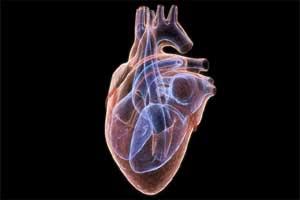- Home
- Editorial
- News
- Practice Guidelines
- Anesthesiology Guidelines
- Cancer Guidelines
- Cardiac Sciences Guidelines
- Critical Care Guidelines
- Dentistry Guidelines
- Dermatology Guidelines
- Diabetes and Endo Guidelines
- Diagnostics Guidelines
- ENT Guidelines
- Featured Practice Guidelines
- Gastroenterology Guidelines
- Geriatrics Guidelines
- Medicine Guidelines
- Nephrology Guidelines
- Neurosciences Guidelines
- Obs and Gynae Guidelines
- Ophthalmology Guidelines
- Orthopaedics Guidelines
- Paediatrics Guidelines
- Psychiatry Guidelines
- Pulmonology Guidelines
- Radiology Guidelines
- Surgery Guidelines
- Urology Guidelines
AHA/HRS new guidelines for treating VA & prevention of sudden cardiac death

The American College of Cardiology (ACC), the American Heart Association (AHA), and the Heart Rhythm Society (HRS) have issued new guidelines for the treatment of adult patients with ventricular arrhythmias (VA) or who are at risk for sudden cardiac death (SCD).The guideline replaces the 2006 guideline and it provides up-to-date evidence-based recommendations on the treatment of ventricular arrhythmias and prevention of sudden cardiac death. This article has been co-published online in Circulation and HeartRhythm.
Sudden cardiac arrest and sudden cardiac death (SCD), are major public-health problems which account for approximately 50% of all cardiovascular deaths, with at least 25% being the first symptomatic cardiac event.
The new guidelines provide recommendations regarding the general evaluation of patients with documented or suspected VA; treatments, therapies, and prevention of VA; acute management of specific VA; and VA in the structurally normal heart. Guidance on VA and SCD related to special populations is also provided, as well as recommendations on the use of implantable cardiac defibrillators (ICDs) in patients with left ventricular assist devices, use of subcutaneous ICDs, and the role of catheter ablation of ventricular arrhythmias.
Among areas of interest in the guidelines:
- Indications for ICDs for the treatment of VA and prevention of SCD are discussed.
- Indications for catheter ablation of VA are discussed, but there are no recommendations on specific techniques or ablation technologies.
- Recommendations for interventional therapies, including ablation and the implantation of devices, apply only if these therapies can be implemented by qualified clinicians.
- All recommendations related to ICDs require that meaningful patient survival of >1 year is expected.
Major recommendations :
- Clinicians should adopt a "shared decision-making approach" in which treatment decisions are based not only on the best available evidence, but also on the patients' health goals, preferences, and values.
- They should inform patients considering implantation of a new ICD or replacement of an existing ICD for a low battery of their individual risk of SCD and nonsudden death from HF or noncardiac conditions and the effectiveness, safety, and potential complications of the ICD in light of their health goals, preferences and values.
For further reference log on to:
http://circ.ahajournals.org/content/circulationaha/early/2017/10/30/CIR.0000000000000549.full.pdf

Disclaimer: This site is primarily intended for healthcare professionals. Any content/information on this website does not replace the advice of medical and/or health professionals and should not be construed as medical/diagnostic advice/endorsement or prescription. Use of this site is subject to our terms of use, privacy policy, advertisement policy. © 2020 Minerva Medical Treatment Pvt Ltd